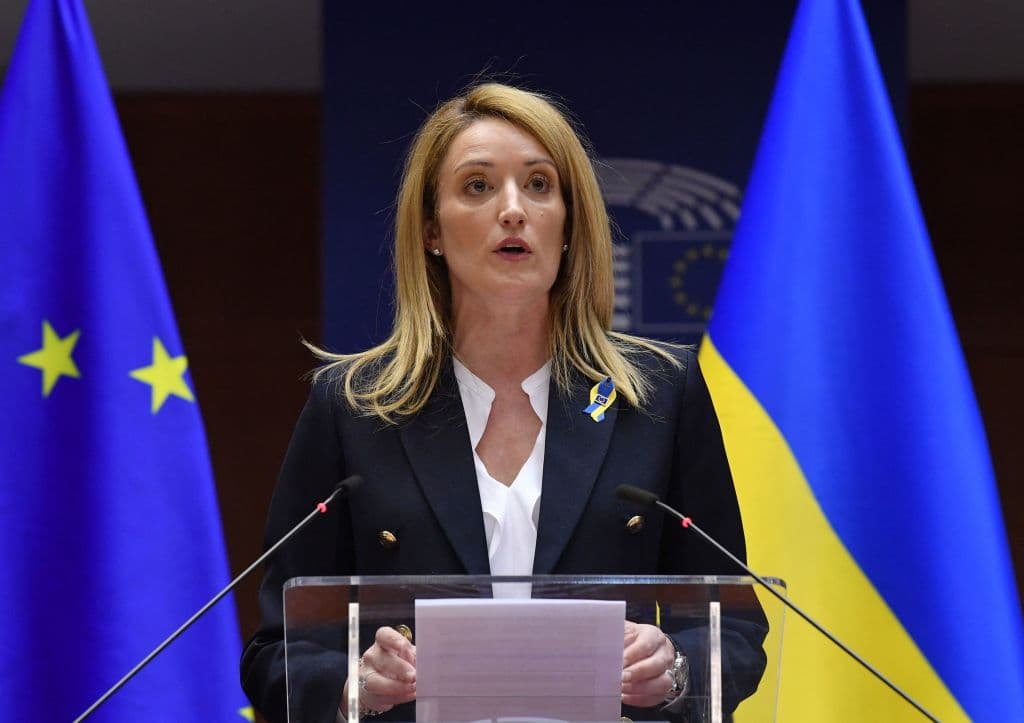European Parliament approves 18 billion euro aid package to Ukraine after deal with Hungary

The European Parliament finally approved an 18 billion euro macro-financial aid package to Ukraine on Dec. 14, after striking a deal with Hungary to drop its veto.
The parliament employed a so-called "urgent procedure" to allow 26 member states to act as the loan guarantors for Ukraine, relieving Hungary from the procedure in exchange for its approval.
The 18 billion euro support package aims to assist Ukraine with paying for essential public services, maintaining macroeconomic stability, and restoring critical infrastructure destroyed by Russian attacks.
Prime Minister Denys Shmyhal said on Sept. 14 that Ukraine was working on receiving $1 billion from the European Union and $1.5 billion from the U.S. each month in 2023.
Shmyhal suggested such help to “completely cover (Ukraine’s) deficit,” projected at $38 billion in 2023, and help form “an additional security cushion.”
Budapest had been blocking Ukraine's 18 billion euro support package to pressure Brussels into releasing EU funds to Hungary, frozen over its democratic backsliding, Politico, which cited four EU officials and diplomats who saw the move as a "blackmail tactic."
According to Hungarian Prime Minister Viktor Orban, Budapest had already allocated its share of the funds for Ukraine in its budget, but had been blocking the deal on the principle of signing up for common debt between EU countries.
Orban, in power for over twelve years in Hungary, has traditionally had a close working relationship with Russian dictator Vladimir Putin. He vowed to stay out of a conflict that he insisted had nothing to do with Hungary.
Unlike its neighbors in the Visegrad 4 group of Central European nations, Hungary has not supplied any military to Ukraine and has forbidden weapons shipments through its territory.
Hungary agreed to lift its blockade on Dec. 13 in exchange for a broader political bargain with Europe.
The Ukraine aid deal comes at the climax of Hungarian Prime Minister Viktor Orban’s conflict with the EU over rule of law.
Hungary was on the verge of losing 7.5 billion euros in EU payouts over concerns that the money may aid graft in the country, according to Politico. EU member states later agreed to lower the suspension to 6.3 billion euros.
In return, the European Council will approve Hungary’s 5.8 billion euro COVID-19 recovery plan, held up since 2021 over the rule of law concerns in Hungary.
Orban has been accused of obstructing justice reforms, turning a blind eye to corruption, and fuelling authoritarian values in Hungary in his fifth mandate as prime minister since 2010.
EU countries made the approval conditional, saying Budapest must complete 27 anti-corruption and judicial independence reforms before getting its money.
The 18 billion euros pledged to Ukraine comes on top of other EU macro financial aid packages already promised.
The European Council pledged 9 billion euros to Ukraine back in May, but the exact implementation of this aid package still needs to be agreed upon in negotiations between countries, with only 3 billion euros having been delivered to Kyiv as of Nov. 7.
So far, the EU has released 4.2 billion euros in macro-financial assistance to Ukraine in the past ten months, including the aforementioned 3 billion package already disbursed, as well as a 1.2 billion emergency package delivered on Feb. 21, right before the launch of Russia’s full-scale invasion.
On top of military equipment delivered by individual EU member states, the European Council also agreed to move 2 billion euros more into a fund to pay for military support for Ukraine on Dec. 12, bringing the total of EU military aid pledged to 5.5 billion euros.









